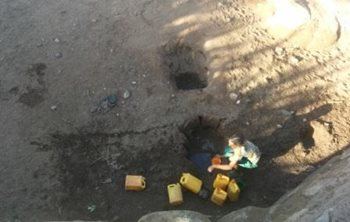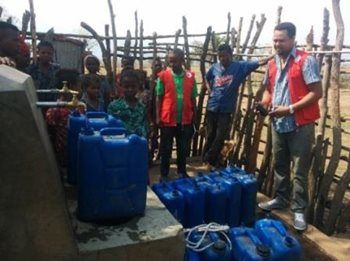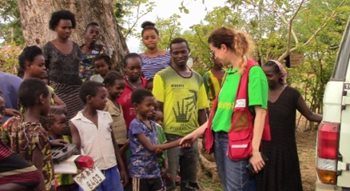Nearly one year ago, my colleague Martin De Vries
described the first rains of 2017 to fall on the desperately drought-affected district of Kindo Koysha in southern Ethiopia. The occasion was joyous but all too short-lived. As Martin concluded then: “Has the drought ended? Not by a long way.”
I arrived in Ethiopia three months later to find incredibly resilient people coping with varying degrees of recurrent drought in their regular ways; ways unfathomable to most of us in Canada.

On my first visit to Kindo Koysha, there was some water in the river beds. Though brown and not flowing, there was something to collect for bathing, washing, cooking and, yes, drinking. A month later, I returned to find girls and women digging metre-deep holes in the riverbed and waiting hours for a little bit of water to pool; their usual coping mechanism. Others had started the business of transporting water from long distances and selling it.
I asked myself, faced with such water constraints, what would I give up first? Bathing? Washing? Cooking? Surely not drinking? How would I avoid disease in these conditions?

Two months later, there was some water flowing (rather, trickling) from highland springs to village taps. It takes about 30 minutes to fill one 20L container, but people line up to take advantage knowing the opportunity will be short-lived. The increasingly frequent cycle of drought continues, and rains are predictably unpredictable.
Red Cross support including emergency water trucking, water storage and purification supplies, concentrated animal feed and veterinary care has indeed saved lives and livelihoods. It is amazing how animals recover and again produce milk on which mothers of five or six or more children so desperately rely. One healthy cow produces 1-2 precious litres of milk per day.

However, the cycle of drought is repeating so frequently it is hard to keep up. I spoke with some farmers who’ve been there since 1974, when it was the “bread basket of the country”. “We live off the land but trying to extract anything from it now is like trying to eat bread on its flat side” as he puts the palm of his hand to his face and mimics taking a bite. “We need sustainable solutions.”
The Red Cross has heard this call. With a strong team of staff and volunteers we are developing sustainable water supply and storage solutions in Kindo Koysha. Deep well drilling and strategic placement of water storage tanks will help provide regular (and backup) water supply to thousands of families.
Each time we meet, community members emphasize that this support is significant. It could be expanded.
Has the drought ended? Still not by a long way. But we can respond to its predictable unpredictability with solutions that reduce the impact of drought on mothers and their children; farmers and their cattle; young girls and their friends.